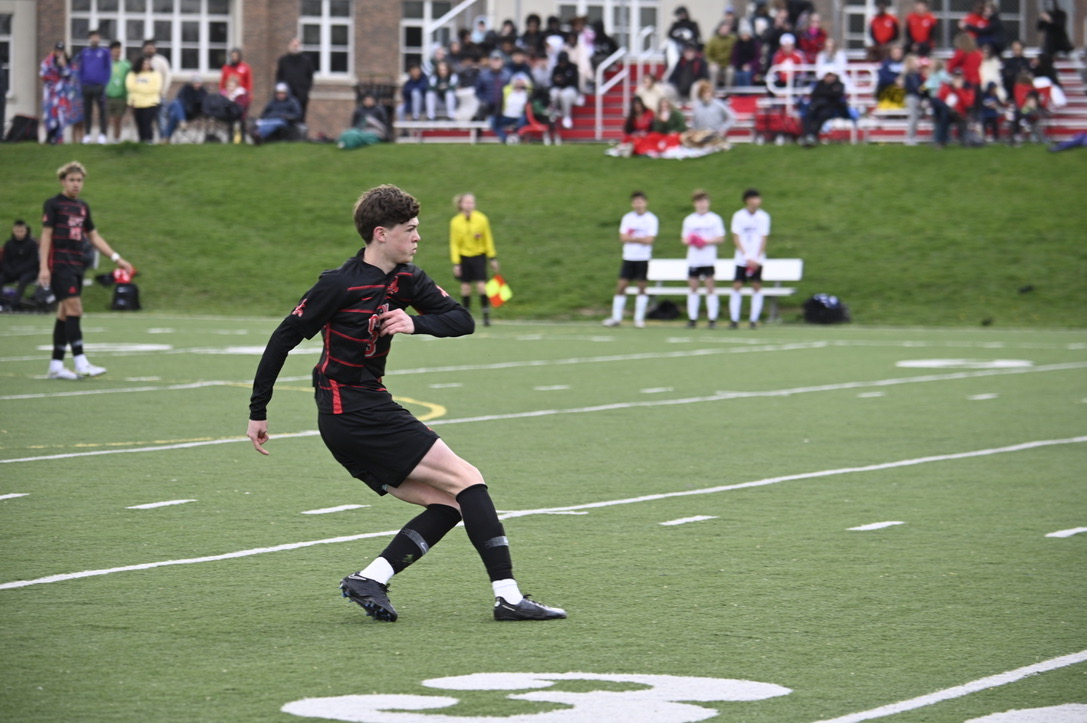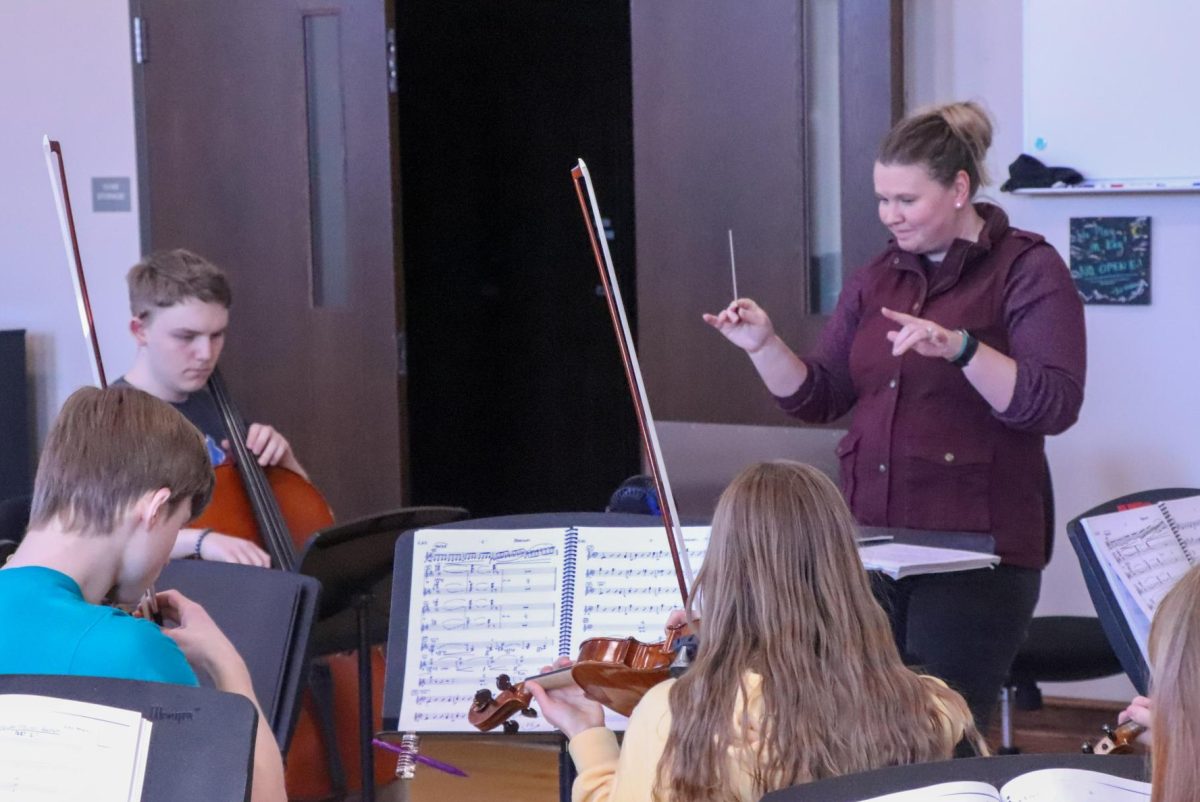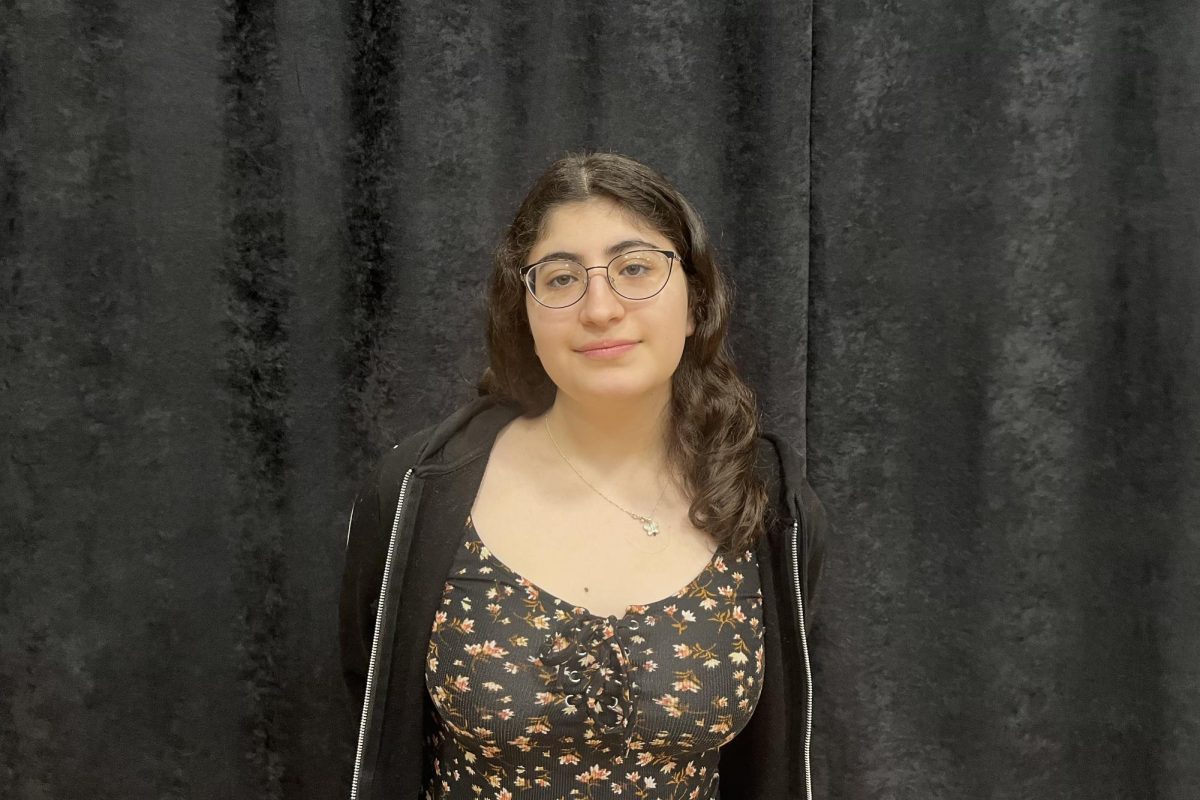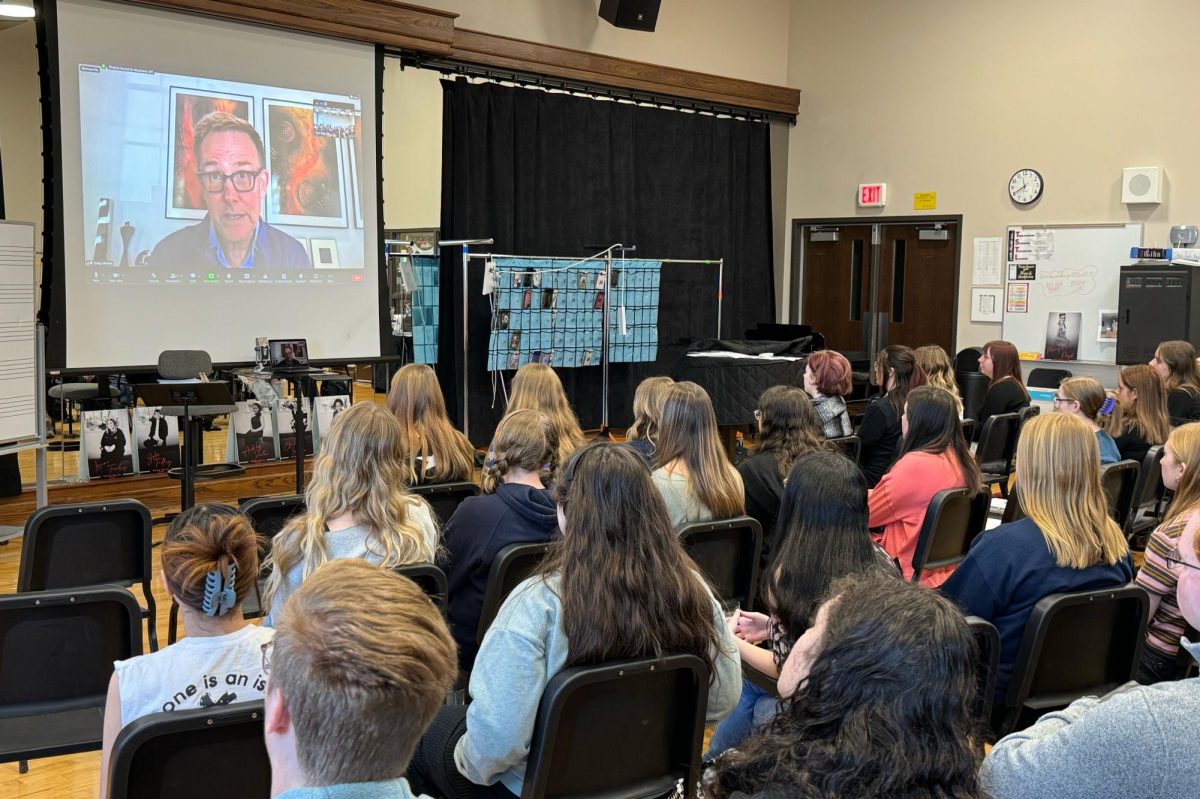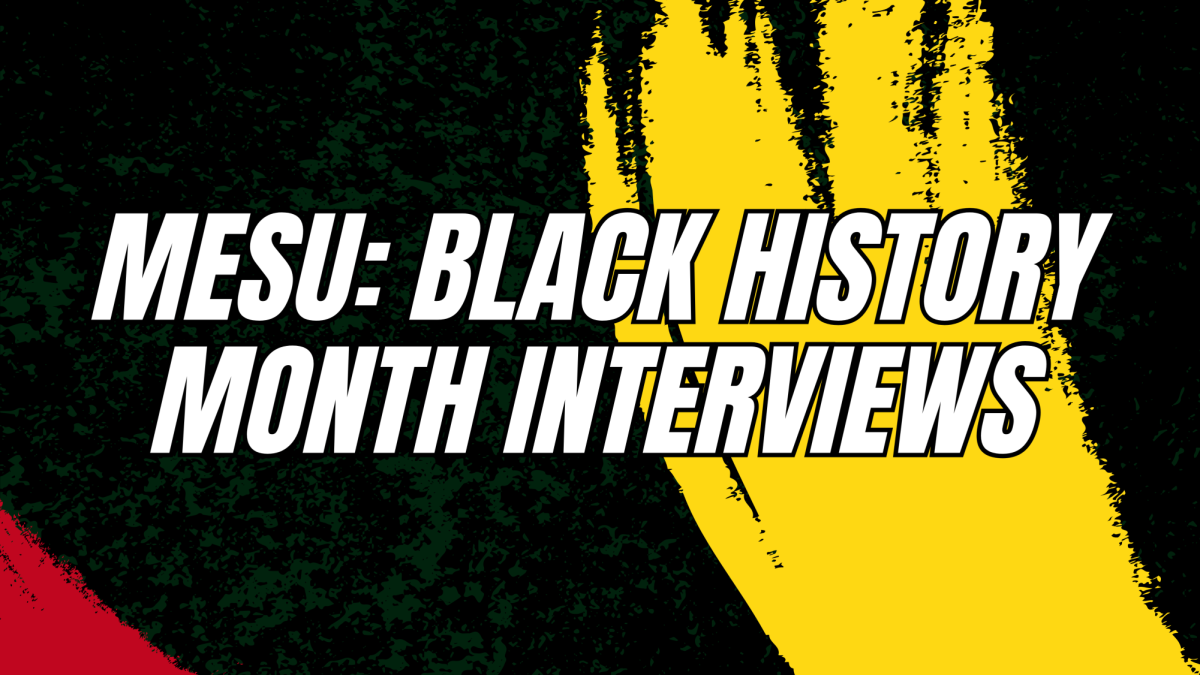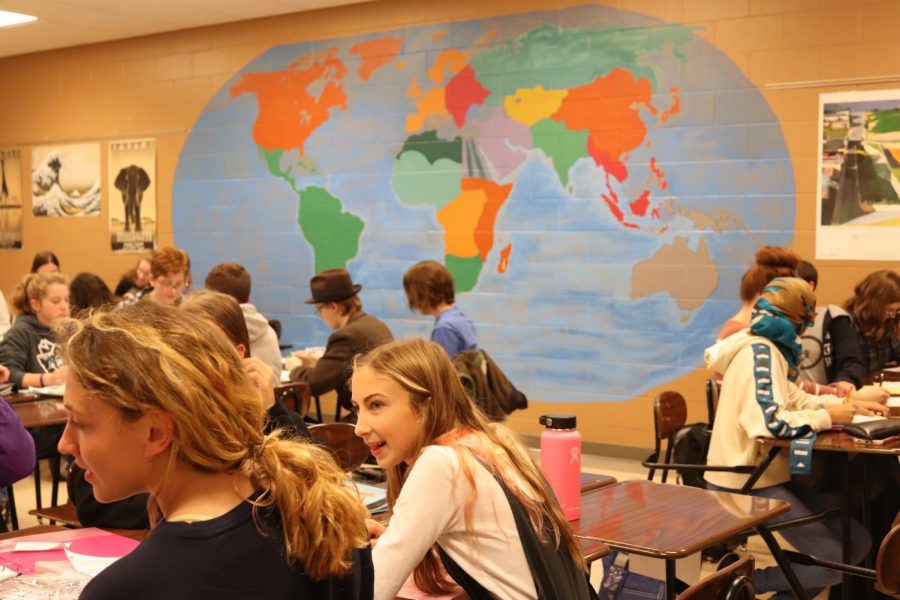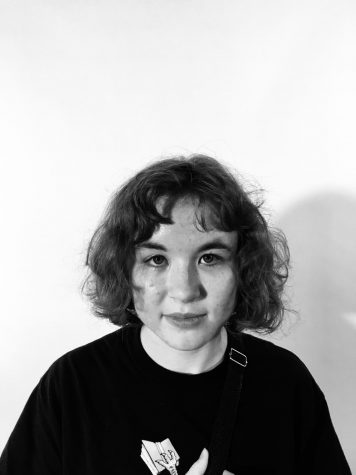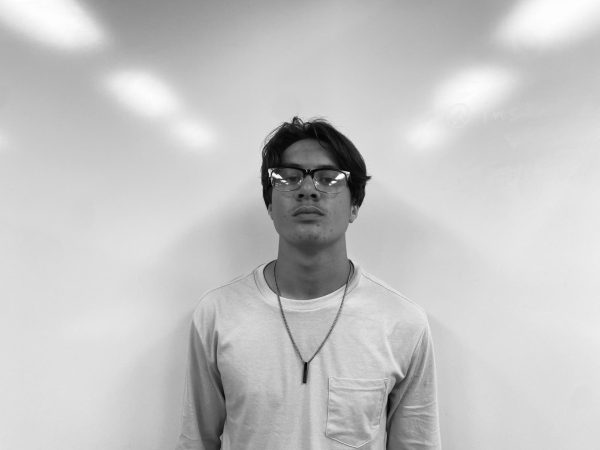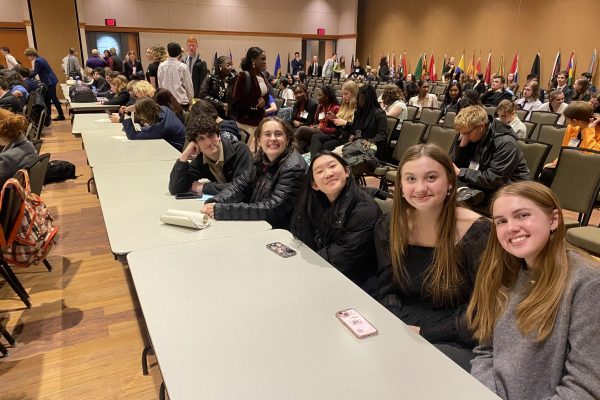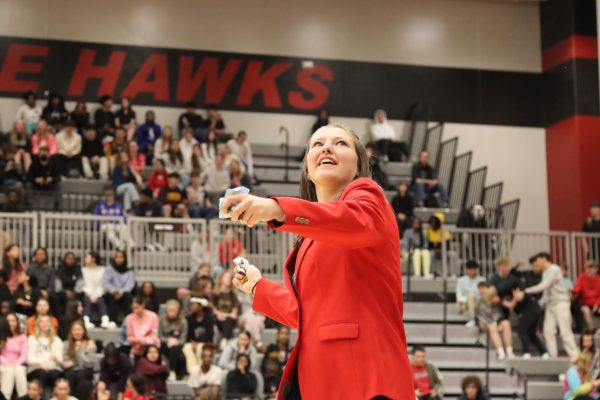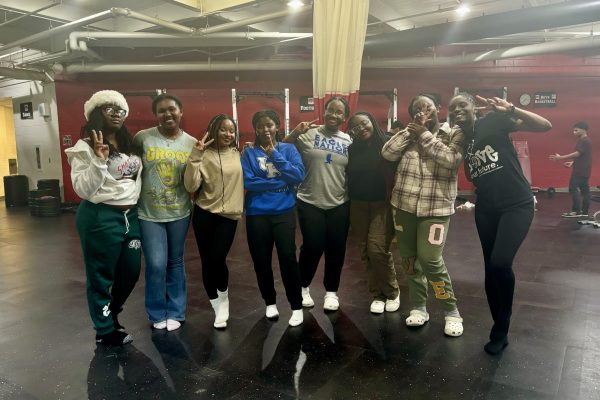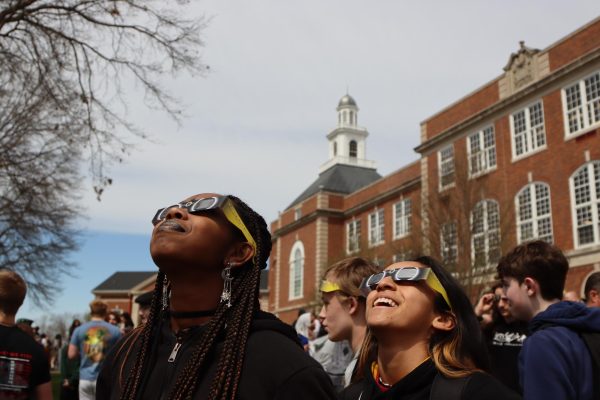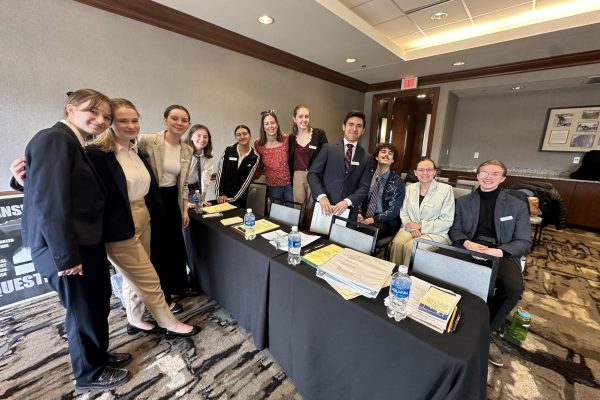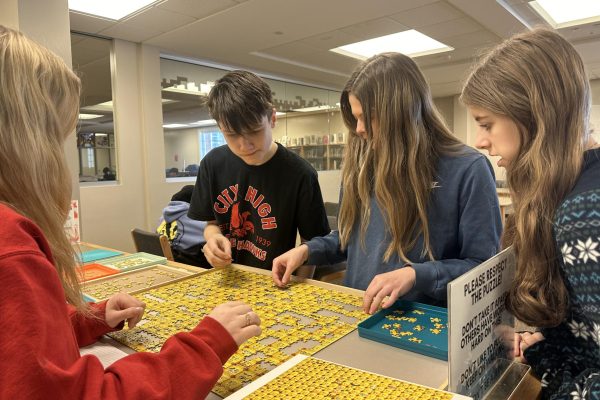College Board Changes AP World History to AP World History:Modern
Mr. Schumann’s 6th period class at work finishing the first version of an Indian Ocean Trade Simulation Game.
November 13, 2019
In April 2017, the College Board announced in the 2019-2020 school year there was going to be a change to AP World History. Now it is AP World History: Modern.
“Instead of starting in prehistory, with the early man and everything else 40,000 years ago, we started in the year 1200,” Judith Dickson, AP World History teacher, said. Instead of starting in prehistory, with the early man and everything else 40,000 years ago, we started in the year 1200. — Judith Dickson - AP World History Teacher
In a reason given by the College Board, ever since the course was made, due to worries of the course covering too much history and having a chance of glossing over important details, changes were made for this school year. In addition to the change to only covering 1200 CE to the present in the new version of the course, they are developing an AP World History: Ancient. This course will go over the history before 1200.
“The lessons are a lot the same,” Jason Schumann, AP World History teacher, said. “We’re just doing them in a different sequence.”
In the spirit of change to the course, they have also changed the required summer assignment for the class. Instead of just reading a book from a booklist, it is one of ten options to earn four stamps required for the course entry. A book is worth three stamps, while the other options, like watching a documentary or making a playlist, are worth one.
“I think it was pretty well received,” Dickson said. “It gave students a lot more options and students [can] personalize the experience, which means that they’re gonna have a stronger personal connection.”
However, not all the changes brought by the College Board were well received by teachers and students alike. Originally, the College Board proposed the class would be from 1450 to the present, but a number of teachers thought this would introduce Eurocentrism to the class. To counter this, they moved the start of the class to 1200 and included how Ingeonious Populations resisted colonization to the course outline.
“I’m [unsure of] the changes,” Louise Shabani ‘21 said. “We need to know about the history [covered] in the course now, but you also need to know how it all started.”
Due to the changes, Schumann and Dickson are finding difficulties in figuring out what order and pace is best with the new material. The Unit Four test over Dar al Islam and Africa alone has been pushed back three school days overall from October 25 to 31. After a few years, they’ve said they should have an ideal way figured out, but until then, they have to get used to the change.
“It’s a very daunting task to redesign a whole course as comprehensive as a World History class,” Dickson said. “We of all people are fortunate that there are two of us teaching in one building. We have to stick with it to the parameters that the College Board gives us, but we’re going to stick our own combination of cultures and events that we want to cover.”










